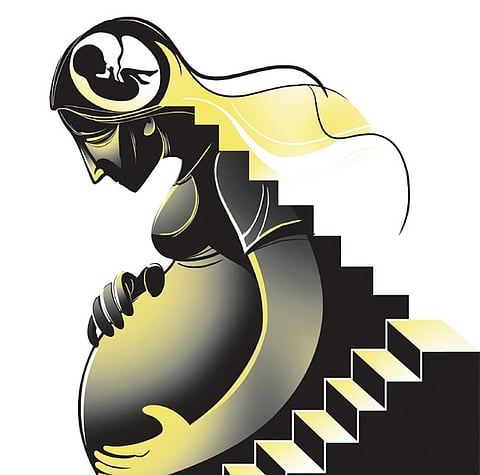

CHENNAI: An investigation into the case of a 36-year-old Kundrathur man performing home birth for his wife has brought to light the possibility of several such cases happening across the state.
Based on their inquiries with Manoharan, the husband, police and health department officials found that he was part of a WhatsApp group promoting home births, with over 1,000 members in it.
However, authorities said their hands are tied since there is no specific law or rule that prohibits home births or enables taking action against people avoiding institutional births.
Manoharan’s wife Sukanya (32) gave birth to their third child at their home in Kundrathur in Kancheepuram on Sunday. The couple already has two children, aged eight and four. When the village health nurses called Manoharan over the phone, he challenged them to take legal action against him. When health officials contacted him, he told them about the WhatsApp group.
“None of the members in the group went to hospitals and they all opted to home birth their babies. By listening to their advice and following them, I also performed it,” he told health officials.
When the health officials lodged a police complaint, the police said they were not aware of any legal provisions under which a case can be registered and sought guidance from the health officials instead.
“At present, there is no law prohibiting home births by untrained people. So, I cannot take action against them. Such incidents have been repeatedly happening. Luckily, in this case, the mother and the baby are safe,” a health department official said.
Speaking to TNIE, Dr T S Selvavinayagam, Director of Public Health and Preventive Medicine, said, “Any delivery, even in a non-high risk mother, can turn into an emergency, and that there is every possibility they may not get emergency obstetric care in time. The risk for the mother is mainly because of obstructed labour, postpartum haemorrhage and infection. Babies are also exposed to several risks including asphyxiation, injury and infection.”
Awareness is the solution and we need to counsel the public on the safety and benefits of institutional births for both mother and baby, he added. Everyone needs to understand that natural birth is different from home birth. “We can promote natural delivery in the institution with suitable contingency plans to handle emergencies, if any,” Selvavinayagam said.
“We are also planning to have a high-level discussion to handle these types of issues. There is every possibility of increased maternal and infant mortality and morbidity (in such cases),” he added.